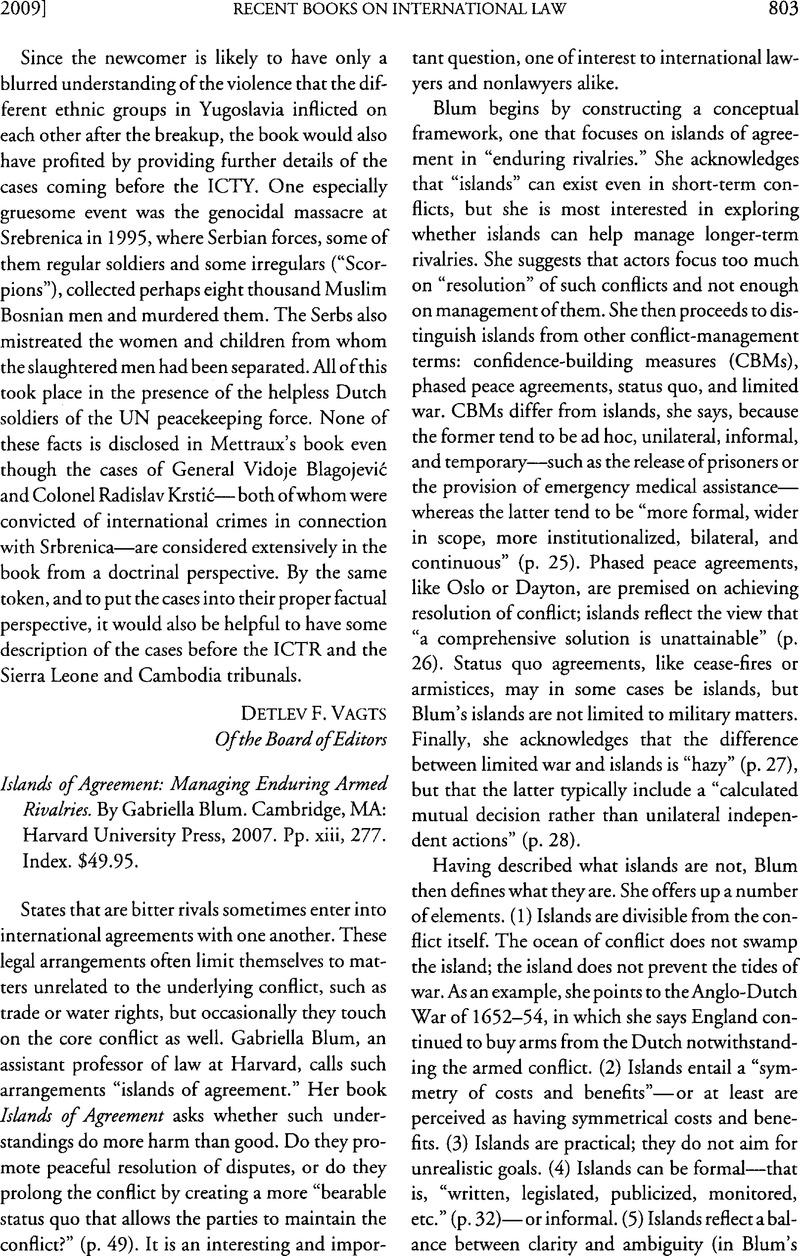No CrossRef data available.
Article contents
Islands of Agreement: Managing Enduring Armed Rivalries. By Gabriella Blum. Cambridge, MA: Harvard University Press, 2007. Pp. xiii, 277. Index. $49.95.
Published online by Cambridge University Press: 27 February 2017
Abstract

- Type
- Recent Books on International Law
- Information
- Copyright
- Copyright © 2009 by The American Society of International Law
References
1 See UN Convention on the Law of the Sea, Arts. 47 (archipelagic baselines), 121 (regime of islands), opened for signature Dec. 10, 1982, 1833 UNTS 397, reprinted in 21 ILM 1261 (1982).
2 See Mideast Accord: Restricting the Violence in Lebanon, N.Y. Times, Apr. 27, 1996, at A8
3 See, e.g., Adir, Waldman, Clashing Behavior, Converging Interests: A Legal Convention Regulating a Military Conflict, 27 Yale J. Int’l L. 249 (2002)Google Scholar; Adir, Waldman, Arbitrating Armed Conflict: Decisions Of The Israel–Lebanon Monitoring Group (2003)Google Scholar.
4 For example, on page 199: “Though Israel enjoyed clear military supremacy, it failed to reach any of its goals, as 650 air raids and 24,000 artillery shells later, and a massive flow of civilians from south Lebanon to the north, Hezbollah was still able to fire Katyusha rockets into its northern territory.” Should there be an “after” before “a massive flow”?




